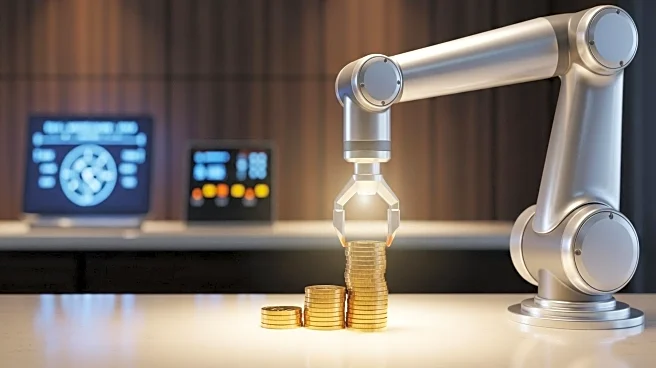What's Happening?
Flywire Corporation has released new research indicating that automating payment processes can significantly enhance hotel revenue and guest satisfaction. The report surveyed over 300 General Managers and Event Directors at multinational hospitality brands, revealing that outdated payment systems are costing hotels revenue due to uncollected deposits and chargebacks. The research suggests that integrating contract and payment workflows can reduce manual errors, improve guest experiences, and increase revenue. Hotel leaders are eager to adopt secure digital payments to reduce chargebacks and streamline operations, with 94% agreeing on the need for more efficient payment processes.
Why It's Important?
The hospitality industry faces challenges such as high staff turnover and revenue loss due to inefficient payment systems. Automating payment processes can help hotels retain staff by reducing manual tasks and allowing teams to focus on high-value guest interactions. This can lead to increased customer loyalty and revenue growth. The integration of digital payment systems provides built-in protections against chargebacks, which are a significant concern for hotel leaders. By modernizing payment workflows, hotels can enhance guest experiences and gain a competitive edge in the market.
What's Next?
Hotels are likely to continue investing in digital payment solutions to streamline operations and reduce inefficiencies. As automation becomes more prevalent, hotel staff may spend less time on manual payment handling, creating opportunities to improve service quality and customer interactions. The industry may see a shift towards more user-friendly automation and real-time payment systems, with a focus on secure transactions and diverse payment methods. Hotel leaders will need to address the challenges posed by chargebacks and turnover to maximize revenue and improve guest satisfaction.
Beyond the Headlines
The ethical implications of automating payment processes in hospitality include ensuring data privacy and security for guests. As hotels adopt digital solutions, they must balance efficiency with maintaining personalized guest experiences. Long-term shifts may involve increased reliance on technology to manage operations, potentially altering traditional hospitality practices and employee roles.








